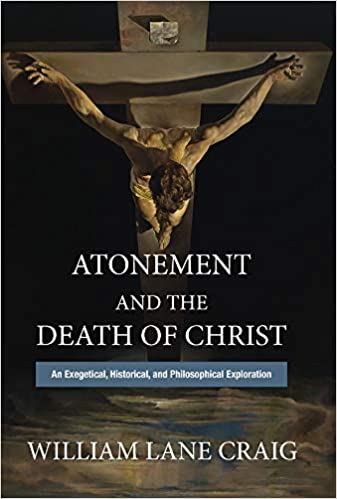Q. Let’s start with the usual question— What prompted you to write this well written book?
A. Thank you! For several years my wife Jan and others have been urging me to write a systematic philosophical theology. I realized that in order to undertake such a prodigious task I would need to bone up on certain areas of systematic theology in which I felt weak. One of those areas was the doctrine of the atonement. I was acutely aware that the doctrine of Christ’s substitutionary atonement, which I take to be biblical teaching, faced formidable philosophical objections to which I did not have a good answer. I was hoping that some Christian philosopher would tackle these objections and offer a robust defense of the Reformation doctrine of the atonement, but, alas, no such defense was forthcoming. I finally decided that I would simply have to tackle this subject myself, and so I devoted a couple of years to an intense study of the doctrine of the atonement as part of my preparation for writing my systematic philosophical theology. The study proved to be unexpectedly rich and rewarding.
Q. On p. 16 you mention the Passover ritual, originally involving the spreading of blood over the lintel of the door of a Hebrew family. This is an avoidance ritual, an apotropaic ritual to protect the dwellers in the house from the angel of death. That is a very different matter than an atoning sacrifice ala Leviticus. And inter alia, Jesus’ death did not protect the early Christians from physical death like the original ritual. I would suggest that the reinterpretation of the elements of the Passover by Jesus has to do with the inauguration of a new covenant. This means that we should not make too much of the original Passover event and its function and meaning as a way to interpret Jesus’ death. In any case, almost all ancient covenants were inaugurated or sealed by an animal sacrifice, including the Abrahamic covenant. That in itself doesn’t indicate what the ritual meant or whether it was connected with atonement. It is Jesus who connects the Passover ritual with a new covenant and atonement (ala Mk. 10.45). What would you say about this?
A. An apotropaic ritual is one that is designed to ward off something bad. In the case of the Passover sacrifice, the ritual warded off God’s judgement and was in that sense propitiatory. It allayed God’s wrath. Had it not been offered, God’s judgement would have fallen on the first-born sons of Israel as well as of Egypt. But as you note, the Passover sacrifice was not an expiatory sacrifice like the later Levitical animal sacrifices, which served to cleanse the people and the tabernacle from sin and impurity. Jesus’ choice of Passover as the time of his death was surely not accidental. His death would shield his followers from God’s judgement, as did the original Passover sacrifice. Moreover, he saw his death as a sacrifice, akin to Moses’ sacrifice, inaugurating a new covenant and also as a fulfillment of Isaiah 53, where God’s righteous Servant gives himself as a sin offering. So the Last Supper combines a number of sacrificial motifs from the OT. I’d be interested in your opinion of my speculation (p. 33n45) that the Passover sacrifice, which came to be offered not in Jewish homes but in the Temple, had by the time of Jesus taken on expiatory overtones.












